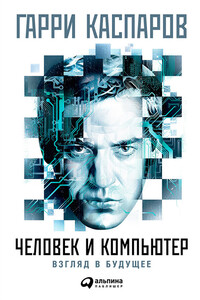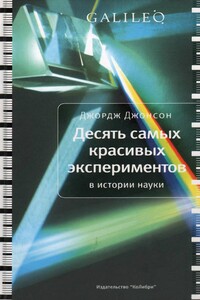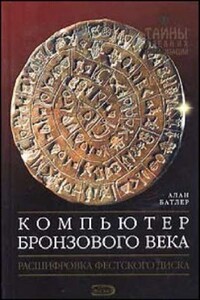Английский язык для специальных и академических целей: Международные отношения и зарубежное регионоведение. Часть 1 - [66]
The Reader
Scandals in democracies allow the public to vent anger without undermining the basis of democracy — we fixate on the misdeeds of a few people at the top, which helps to preserve the underlying structures intact. This represents one of the basic differences between democracy and the alternatives. Under autocratic regimes, an outburst of public rage can be fatal because the system lacks the means to accommodate it. That is why autocrats are so scared of scandals (witness the efforts by the Chinese state to limit the effects of the Bo Xilai affair). The distraction of Watergate helped American democracy to survive the 1970s: it allowed citizens to let off steam without resulting in an implosion of the entire system of government. It was the regimes that couldn't accommodate popular anger, including the communist states of eastern Europe, that eventually fell apart.
A multiplication of scandals gives the appearance of the build-up of a huge head of steam for change. But in fact it means the steam gets let off in lots of different places at once, which makes it even harder to channel public anger in any one direction in particular. The response is far more likely to be fragmentary than coherent: endless firefighting rather than a concerted effort to build a better system of government. At the same time, we are still a long way from the state of public indifference that might give the politicians room to undertake bolder experiments. The risk is that a fragmentation of public attention coincides with a deepening sense of resentment at the ineffectual attempts by politicians to make a tangible difference. For now even the moments of catharsis are proving elusive.
The digital revolution exacerbates this risk. The multiplication of scandals is in part the result of the emergence of information that has long been suppressed. In the absence of secrets, public anger never completely goes away: there is always something new to rail against. Democracy in Britain is more secure than it was in the 1970s because of the absence of ideological alternatives and because of the material comfort in its foundations. But it faces a challenge that did not exist four decades ago. Constant scrutiny of a surfeit of information fragments more than just attention spans. At the end of the 1970s the two main parties together commanded the votes of over 80 per cent of voters on a turnout of over three-quarters of the electorate. Now Labour and the Tories share the support of barely two-thirds of those who vote on turnouts of less than two-thirds of the total electorate — and both figures are likely to keep falling.
The risk for British democracy is not of permanent crisis. It is of a permanent state of scandal obscuring the underlying crisis of elitist managerial politics and thereby making it harder to fix. It is increasingly difficult to envisage the circumstances in which politicians get the space to try something new.
The advantage of democratic systems of government is that they adjust when they have to, trying something new until they find something that sticks. They are broadly experimental and adaptable. British democracy is much more secure than it was in the 1970s, yet it is also much more fragmented. Together, these two factors leave its adaptability in question. With these factors in play, it may be that the crisis has to get a lot worse before the conditions arise in which significant change is possible. But the crisis is real and bad enough already, and wishing for worse in order to galvanise the prospects for institutional change is playing with fire. Although the leaders of both main political parties like to compare themselves with Margaret Thatcher in her role as steely-willed game-changer, no one wants to go back to the high-stakes politics of the 1970s. British democracy recovered from the travails of that decade. The present state of British democracy is a reflection of how far removed we are now from those looming fears of imminent collapse. This time the danger is different. We face the risk of getting stuck where we are.
The Reader
David Runciman is a professor of politics and fellow of Trinity College, Cambridge. His latest book, “The Confidence Trap: a History of Democracy in Crisis from World War I to the Present”, is published by Princeton University Press (£19.95)
This is an edited version of an essay that appears in the winter edition of the IPPR journal Juncture COMPULSORY VOTING MAY REINFORCE THE RESENTMENT
By Democratic Audit 27/05/2014
With young people much less likely to vote than older generations, it has been proposed the UK follow other countries such as Belgium and Australia by introducing compulsory voting, with IPPR suggesting only first-time voters should be forced to participate. Matt Henn and Nick Foard consider the merits of this proposal using data from a recent survey of voting intentions, concluding it would risk increasing the disconnect between young people and democracy.

Сегодня искусственный интеллект меняет каждый аспект нашей жизни — ничего подобного мы не видели со времен открытия электричества. Но любая новая мощная технология несет с собой потенциальные опасности, и такие выдающиеся личности, как Стивен Хокинг и Илон Маск, не скрывают, что видят в ИИ возможную угрозу существованию человечества. Так стоит ли нам бояться умных машин? Матчи Гарри Каспарова с суперкомпьютером IBM Deep Blue стали самыми известными в истории поединков человека с машинами. И теперь он использует свой многолетний опыт противостояния с компьютерами, чтобы взглянуть на будущее искусственного интеллекта.

В наше время научные открытия совершатся большими коллективами ученых, но не так давно все было иначе. В истории навсегда остались звездные часы, когда ученые, задавая вопросы природе, получали ответы, ставя эксперимент в одиночку.Джордж Джонсон, замечательный популяризатор науки, рассказывает, как во время опытов по гравитации Галилео Галилей пел песни, отмеряя промежутки времени, Уильям Гарвей перевязывал руку, наблюдая ход крови по артериям и венам, а Иван Павлов заставлял подопытных собак истекать слюной при ударе тока.Перевод опубликован с согласия Alfred A, Knopf, филиала издательской группы Random House, Inc.

Самые необычные природные явления: брайникл, фата-моргана, прибрежное капучино, огни Святого Эльма, шаровая молния, огненная радуга, огненный вихрь, двояковыпуклые облака, красные приливы, световые столбы, волны-убийцы.

Нам предстоит познакомиться с загадочным племенем рудокопов, обитавших около 2–4 тысячелетий назад в бассейне реки Россь (Западная Белоруссия). Именно этот район называл М. В. Ломоносов как предполагаемую прародину племени россов. Новые данные позволяют более убедительно обосновать и развить эту гипотезу. Подобные знания помогают нам лучше понять некоторые национальные традиции, закономерности развития и взаимодействия культур, формирования национального характера, а также единство прошлого и настоящего, человека и природы.http://znak.traumlibrary.net.

Созданный более 4000 лет назад Фестский диск до сих пор скрывает множество тайн. Этот уникальный археологический артефакт погибшей минойской цивилизации, обнаруженный на острове Крит в начале XX века, является одной из величайших загадок в истории человечества. За годы, прошедшие со дня его находки, многие исследователи пытались расшифровать нанесенные на нем пиктограммы, однако до настоящего времени ни одна из сотен интерпретаций не получила всеобщего признания.Алан Батлер предлагает собственную научно обоснованную версию дешифровки содержимого Фестского диска.
